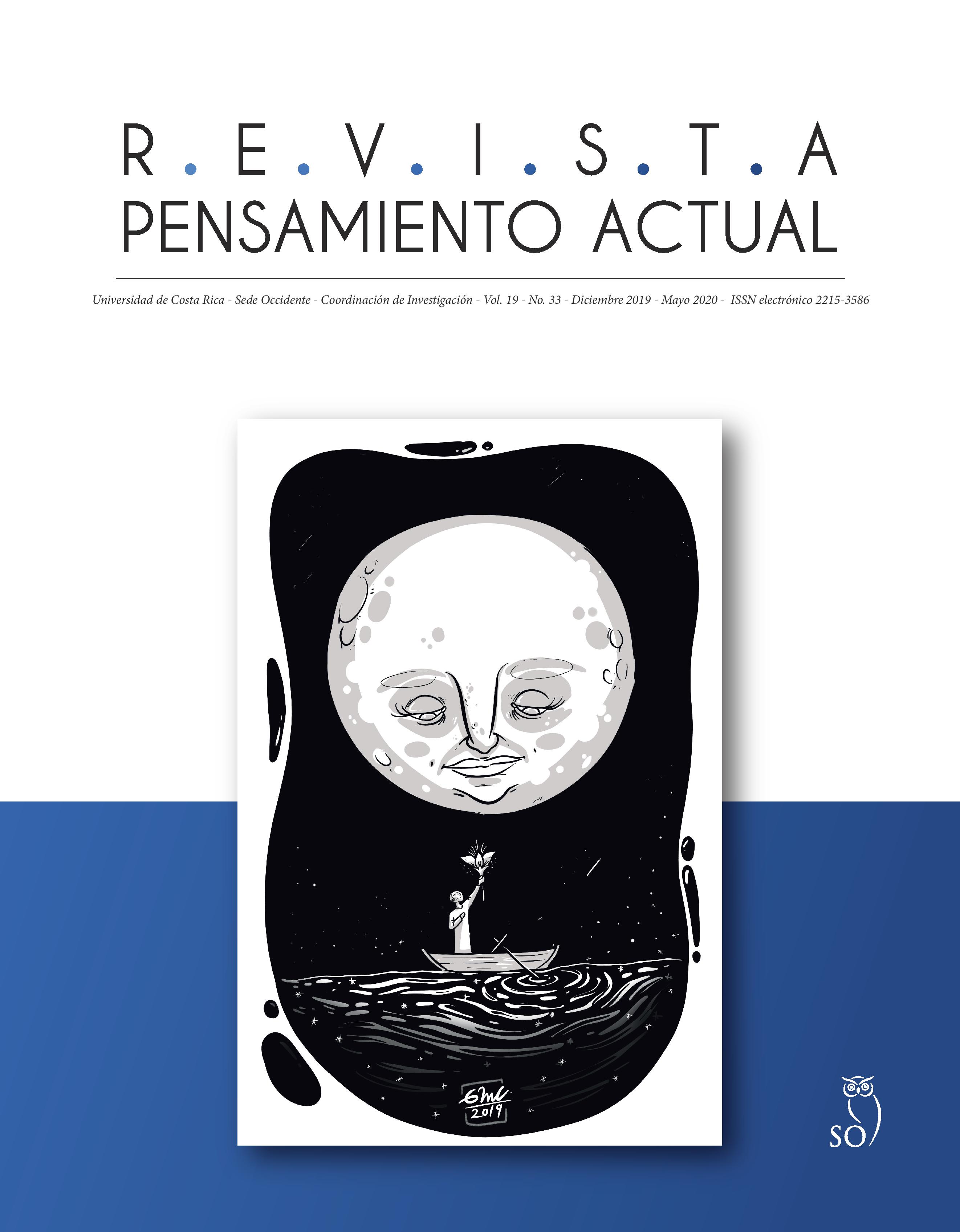Abstract
This article is the result of a qualitative research, with the purpose to analyze the types of violence by gender that Students as mothers face in different scenarios, such as family, educational and relationship context, and some empowerment strategies that they must assume to be able to fulfill their right to higher education.
On these less visible, more accepted and less questioned types of violence is what we are going to reflect on, more specifically: In the physical, psychological, sexual, economic, and institutional violence experienced by the Students as mothers, in the family, relationship, and institutional context. To this end, we worked with a population of eight students who are also mothers that received the services of the University Children's House of the Western Headquarters (CIUSO), of the University of Costa Rica, during the period 2011-2012. Hence, it was considered important to bring up a topic that was being made invisible and absent in previous researches conducted by the area of Social Sciences, at this University Headquarters. For this research the qualitative approach was used, because it was of vital importance in the process of gathering and analyzing the information, by using this method it was possible to understand the different empowerment strategies, both individually and collectively that the mothers that attend college developed to face these issues of violence and be able to start or resume their higher education.The results obtained showed the presence of gender violence in its different manifestations by which means it was possible to determine that the population under study had a strong presence of social and political empowerment, due to the fact that there was a mixture of individual capacities, talent and willpower in each one of them and it was thanks to those personal attributes that collective efforts were achieved.
References
Alméras, D y Calderón Magaña, C. (2012). Si no se cuenta, no cuenta. Información sobre la violencia contra las mujeres., Santiago, Chile. [En línea] Santiago [Citado 21-04-12]Disponible en internet: https://repositorio.cepal.org/bitstream/handle/11362/27859/S2012012_es.pdf
ASOCAM (2007). “Reflexiones y Aprendizajes” Empoderamiento: conceptos y orientaciones. Quito, .[En línea] [citado 16-04-12] Disponible en internet: https://www.shareweb.ch/site/2007.pdf
Casique. I. (2010). Factores de empoderamiento y protección de las mujeres contra la violencia. En Revista Mexicana de sociología. vol.72 no.1 México ene./mar. 2010. [En línea] México [Citado 21-04-12]Disponible en internet: http:// www.scielo.org.mx/scielo.php?script=sci_arttext&pid=S0188-25032010000100002
ENDIREH. (2003). Encuesta Nacional sobre la Dinámica de las Relaciones en los Hogares. INEGI, México. [En línea] México [Citado 21-04-12]Disponible en internet: http://cedoc.inmujeres.gob.mx/documentos_download/100492.pdf
Eternod, M. (2005.) El Sistema de estadísticas sobre violencia en el Instituto de Estadística, Geografía e Informática. (p.26). En Instituto Nacional de las Mujeres. (2005). Reunión internacional de atención y prevención de la violencia hacia las mujeres: Un enfoque multidisciplinario. México. [En línea] [Citado 20-06-12] Disponible en internet: http://www.inmujeres.gob.mx
Ferrer Lanchares. Y. (2012). Intervención con grupos de mujeres para el empoderamiento y la prevención de la violencia de género en la provincia de Palencia. Grado de Educación social. E.U.E de Palencia. Universidad de Valladolid. [En línea] [Citado 20- 06-12] Disponible en internet: http://uvadoc.uva.es/ bitstream/handle/10324/2076/tfg-;jsessionid=A19E A9D3B0C18AB23E826DC49834543F?sequence=1
Gurdián, A. (2010). El paradigma cualitativo en la investigación socio-educativa. San José, Costa Rica: Editorial Universidad de Costa Rica.
Mejía. Julio. (2000). “Técnicas cualitativas de investigación en ciencias sociales”. Revista: Investigación Educativa. Año 4, No. 7. Universidad Nacional Mayor de San Marcos.Lima, Perú.
Moreno, E. (sf). La transmisión de modelos sexistas en la escuela. Sin más referencia. [En línea] [Citado 21-04-12]Disponible en internet: https://www.dgespe.sep.gob.mx/public/genero/PDF/GEN%20 O1/G_01_02_La%20transmisi%C3%B3n%20 de%20modelos.pdf
ONU (1993). Declaración sobre la eliminación de la violencia contra la mujer. Art. 1. 85ª sesión plenaria, 20 de diciembre de 1993. [En línea] [Citado 20-06-12] Disponible en internet: https://www.ohchr.org/sp/professionalinterest/pages/ violenceagainstwomen.aspx
OPS/OMS. (2009). Empoderamiento de mujeres adolescentes. Una publicación producida por el Área de Salud Familiar y Comunitaria (FCH) de la Organización Panamericana de la salud / Organización Mundial de la Salud. [En línea] Washington. D.C. [citado 21-04-12] Disponible en internet: http://new.paho.org/hq/dmdocuments/2010/Empoderamiento%20 de%20Mujeres%20Adolescentes.pdf
Ramírez Robledo L, E, Arcila, A, Buriticá, L, E y Castrilló, J. (2004). Paradigmas y Modelos de Investigación. Guía Didáctica y Módulo. Fundación Universitaria Luis Amigó. Facultad de Educación. 2 edición. [En línea] [Citado el 20-08-12 Disponible en internet http://virtual.funlam.edu.co/repositorio/sites/default/files/repositorioarchivos/2011/02/0008parad igmasymodelos.771.pdf
UNESCO. (1998). Declaración Mundial sobre la Educación Superior en el Siglo XXI: visión y acción y Marco de Acción prioritaria para el cambio y el Desarrollo de la Educación Superior. Conferencia Mundial sobre la Educación Superior. [En línea] [Citado 21-04-12- y el 13-04-13] Disponible en: : http://www.unesco.org/education/educprog/wche/declaration_spa.htm
UNESCO. (1998). Mujeres y educación superior, cuestiones y perspectiva.[En línea] [Citado el 12-04-13]. Disponible en: http://www.unesco.org/education/educprog/wche/principal/women-s.html
Vasilachis, I. (2006). Estrategias de investigación cualitativa. Barcelona, España: Editorial.GEDISA.

